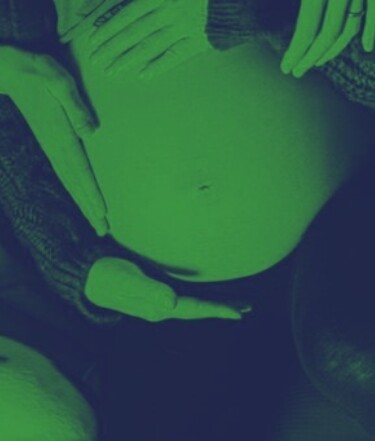
Social compensation law in case of partner violence
Survivors of domestic violence - mostly women - are being denied compensation benefits. We support a plaintiff against the discriminatory practice - with success.
Social compensation law fails survivors of domestic violence
Survivors of violent acts are entitled to compensation under social compensation law, for example compensation for medical treatment costs. Up to now, the entitlement has been regulated in the Victims' Compensation Act (OEG); from 2024, it will be found in Social Code (SGB) XIV, which was promulgated on December 19, 2019. The entitlement is based on the idea that the state has a responsibility to protect people from injustice and to prevent acts of violence. Where this protection fails, it has a fundamental legal obligation to work to protect survivors of violence and provide them with compensation.
However, survivors of violence are not granted compensation if they themselves caused the act of violence or if, due to prior conduct, it would be "inequitable" and unjust for the community to pay for the consequences of the act (§ 2 OEG, in future § 17 SGB XIV). In two highly controversial rulings in 1998, the Federal Social Court interpreted and developed this passage in the law in such a way that persons affected by acts of violence in partnerships usually do not receive compensation (BSG ruling of October 21, 1998, file no. B9 VG 6/97 R and of December 9, 1998, file no. B9 VG 8/97R). The reasoning behind this is that they "consciously or recklessly" exposed themselves to a danger that they could have easily avoided: They could have ended the relationship and thus prevented the violent act.
Practice of social compensation discriminates against women
This is also what the Berlin plaintiff is accused of. She had separated from her partner shortly before when he visited her unannounced in her apartment at night. He aggressively harassed her and refused to leave the apartment. Finally, he hit her in the head with a metal cup filled with coins and seriously injured her. For this act, her ex-partner was convicted of dangerous bodily harm in combination with trespassing and insult. The responsible Berlin State Office for Health and Social Affairs denied the woman compensation under the Victim Compensation Act (OEG). The public authority claimed that she was predominantly responsible for the dangerous bodily injury herself: After all, she had remained in a relationship with the perpetrator, despite him having already insulted and pushed her beforehand. A state compensation payment was therefore "inequitable".
The negative decision is not an isolated case, but exemplary for the discriminatory decision-making practice of public authorities and courts in the area of survivor compensation. Various women's counseling centers have criticized this in the past. In such cases, there is a fatal perpetrator-victim reversal that ignores the structural causes of intimate partner violence.
Every fourth woman experience violence in a partnership
The almost systematic denial of compensation in cases of intimate partner violence constitutes indirect gender discrimination. An apparently gender-neutral regulation on domestic violence in fact affects women to a much greater extent. This is because women are many times more likely to be affected by violence in relationships. According to EU-wide statistics, one in three women in Europe experiences physical or sexual violence. In 2017, police crime statistics in Germany recorded 138,393 people who were victims of violence in partnerships, 82% of whom were women. The unreported number of women affected by "domestic violence" is estimated to be significantly higher: about one in four women experiences sexual or physical violence in a partnership in the course of her life.
The view that women who are in violent relationships are partly to blame for the acts of violence fails to recognize the dynamics of violent relationships. For example, the fear of further violence, the consequences for children or financial dependency often make it difficult to end a relationship (see a study by the German Federal Ministry for Family Affairs, Senior Citizens, Women and Youth).
Protection from violence also requires compensation
This practice also runs counter to Germany's human rights obligations. Gender-based violence is recognized as a human rights violation, its prohibition being enshrined in the UN Convention on the Elimination of All Forms of Discrimination against Women (CEDAW) and the European Convention on Human Rights. Most recently, the Istanbul Convention, ratified by Germany, further concretized the obligations to protect women from violence. The state thus has a fundamental and human rights obligation to protect women from violence. This protection must not stop once acts of violence have occurred. Protection also means providing women with compensation.
The reform of social compensation law has not ended discrimination
The Victims' Compensation Act has been reformed and will be replaced by the already promulgated SGB XIV, which has been in force in a few points since 2021, but will comprehensively come into force in 2024. The reform brings many improvements. Nevertheless, SGB XIV has not ended the structural exclusion of survivors of domestic violence from benefits. A legal clarification is missing despite the urging of relevant organizations.
Jointly with the lawyer Ronska Grimm, GFF supports one of many affected women in this landmark case. After the successful interim judgment on July 9, 2021, which granted the plaintiff a claim for compensation, we are now waiting for the amount of compensation to be determined by expert opinion and for the proceedings to be concluded by final judgment.
Important success in court: The regional social court awards compensation
In an interim ruling on July 9, 2021, the Regional Social Court upheld the plaintiff's case and decided that she is entitled to compensation in the matter. This is already an important success and a great relief for the plaintiff.
However, the court found that the plaintiff did not fall into the case group of "remaining in a dangerous relationship" established in the controversial case law of the Federal Social Court, if only because she had definitively separated from her partner before the relevant act of violence. This is true. Unfortunately, it also means that the ruling does not clarify that compensation claims must also exist after acts of violence in existing relationships. Otherwise, the social compensation law threatens to continue to go nowhere for many survivors of domestic violence.
The amount of compensation must now be determined by an expert opinion and then the court will conclude the proceedings with a final judgment. The State Office for Health and Social Affairs can appeal against this.



